Route Replication the Easy Way
Easy Virtual Network (EVN) was a technology Cisco came up with back in the days to make it easier to implement VRFs without the pain of running VRF lite or the complexity of running a full MPLS + BGP network. It was actually a pretty cool technology but never became mainstream. However, as part of this technology, Cisco also made it easier to replicate, or in other words leak, routes between VRFs. You don’t need the rest of EVN to do this and this simplified way of replicating routes have kind of been forgotten by the industry. I thought I would share with you the ease of replicating routes with this feature even without BGP.
We have a straight forward topology like the one below:
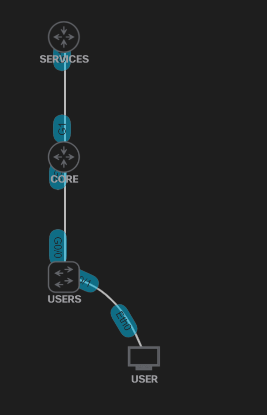
The USERS switch is a L2 switch and all the L3 configuration is in the CORE router. We have implemented segmentation in the network so we have a USERS VRF and then we have a SERVICES VRF for shared services such as DNS and DHCP. Because these services are in a separate VRF, we will not have reachability to them from the USERS VRF. This lab will use the following IP addresses:
User – 10. Continue reading
Interesting Concept: Time Dilation
I loved the Time Dilation blog post by Seth Godin. It explains so much, including why I won’t accept a “quick conf call to touch base and hash out ideas” from someone coming out of the blue sky – why should I be interested if they can’t invest the time to organize their thoughts and pour them into an email.
The concept of “creation-to-consumption” ratio is also interesting. Now I understand why I hate unedited opinionated chinwagging (many podcasts sadly fall into this category) or videos where someone blabbers into a camera while visibly trying to organize their thoughts.
Just FYI, these are some of the typical ratios I had to deal in the past:
Interesting Concept: Time Dilation
I loved the Time Dilation blog post by Seth Godin. It explains so much, including why I won’t accept a “quick conf call to touch base and hash out ideas” from someone coming out of the blue sky – why should I be interested if they can’t invest the time to organize their thoughts and pour them into an email.
The concept of “creation-to-consumption” ratio is also interesting. Now I understand why I hate unedited opinionated chinwagging (many podcasts sadly fall into this category) or videos where someone blabbers into a camera while visibly trying to organize their thoughts.
Just FYI, these are some of the typical ratios I had to deal in the past:
Out of the Box Infrastructure Connectivity Options
There are plenty of physical layer connectivity options available these days. Be sure to consider all of them before your next upgrade.The importance of Calico’s pluggable data plane
This post will highlight and explain the importance of a pluggable data plane. But in order to do so, we first need an analogy. It’s time to talk about a brick garden wall!
Imagine you have been asked to repair a brick garden wall, because one brick has cracked through in the summer sun. You have the equipment you need, so the size of the job will depend to a great extent on how easily the brick can be removed from the wall without interfering with all the ones around it. Good luck.

Now that we have that wonderful imagery in mind, let’s look at how to go about designing walls — and how they can be maintained.
About software coupling: Fixing walls and designing great walls
“Coupling” is the term used to describe the interdependence between pieces of software. Closely coupled systems are interdependent and difficult to separate; loosely coupled systems are more like building blocks designed to work together, but they come apart cleanly. So, since the bricks in our garden wall are closely coupled (in this case, by cement), attempting to remove just one creates difficult challenges.
We can think of software as being built in “walls,” Continue reading
The Tipping Point For PCI-Express Fabrics
In the longest of runs, say within the next five to ten years, in the large datacenters of the world, the server chassis as we know it will no longer exist. …
The Tipping Point For PCI-Express Fabrics was written by Timothy Prickett Morgan at The Next Platform.
Regulating Big Tech. This Time, for sure!
There is a growing unease within the US and elsewhere over the extraordinary rise of these technology giants, not just in monetary terms but in terms of their social power as well. There is a growing sentiment that the current situation looks like it will never be adequately corrected by just competitive pressures within market itself. Some further forms of regulatory intervention will be needed to force a fundamental realignment of these players. In so doing, it appears that regulators appear to be finally catching up with the online world in the US, in Europe and in China.Government Aims for Equitable Network Connectivity for Education
The CARES Act and other government programs seek to provide equitable educational opportunities via improved network connectivity.Early Hints: How Cloudflare Can Improve Website Load Times by 30%
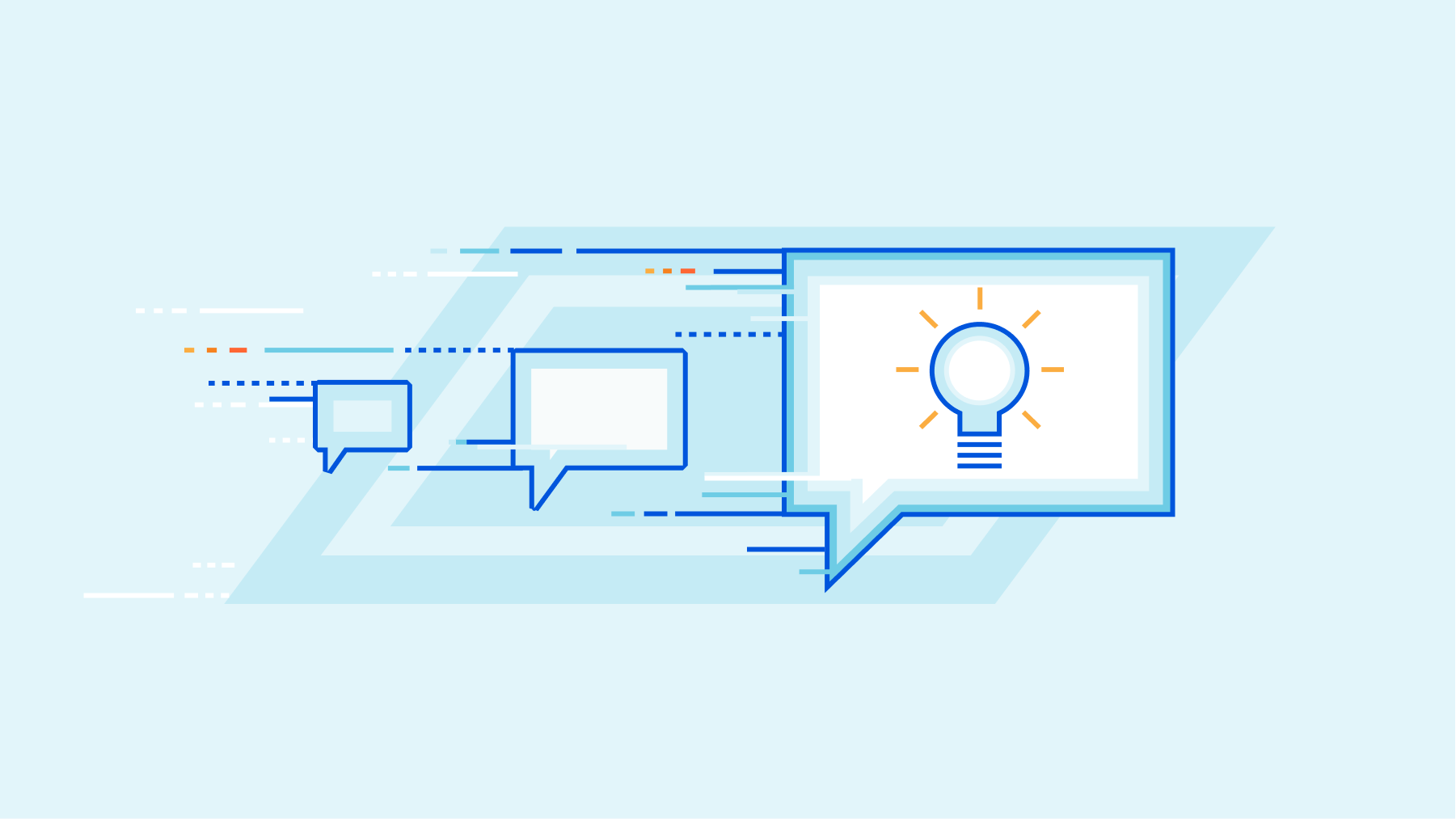
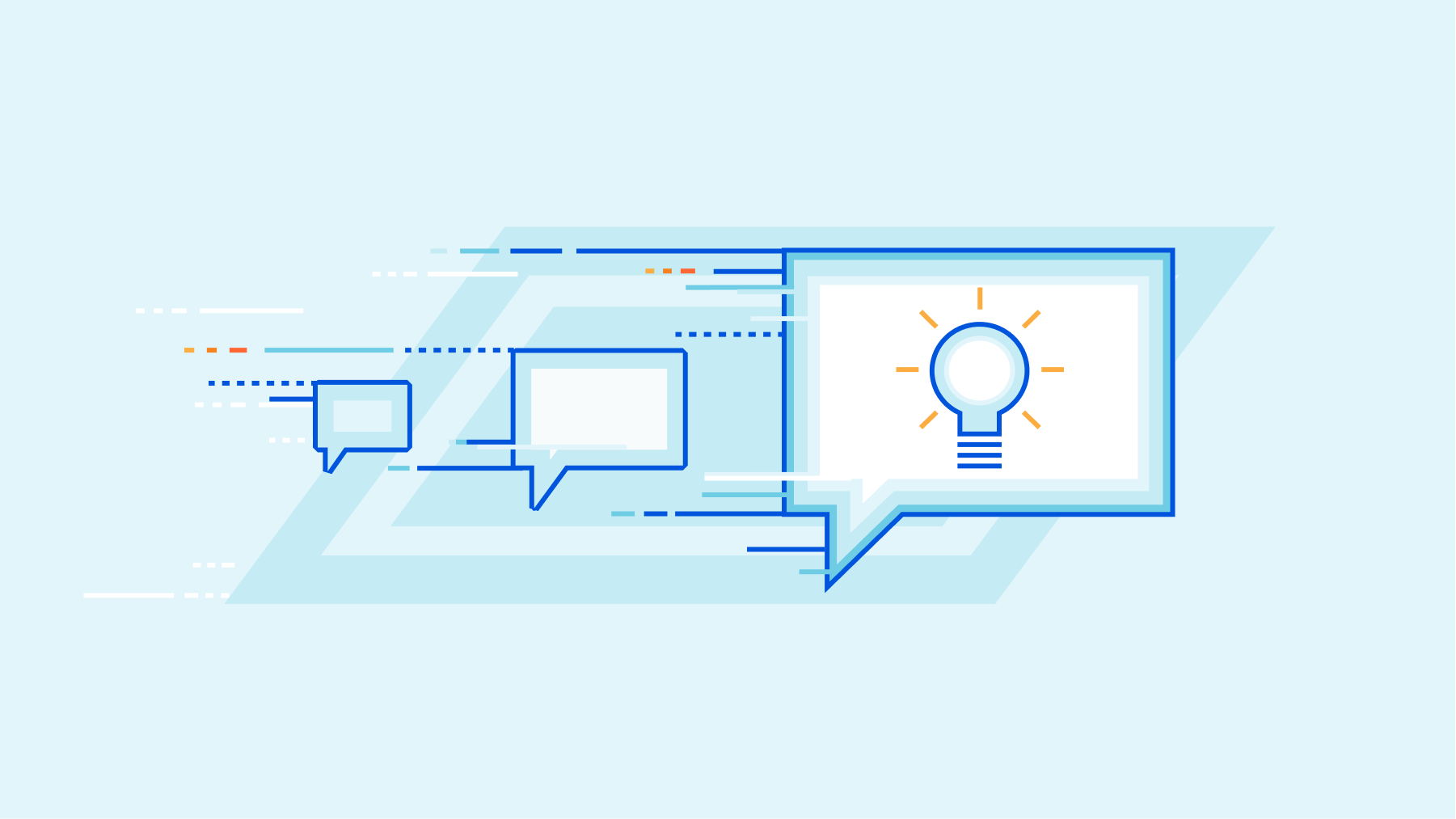
Want to know a secret about Internet performance? Browsers spend an inordinate amount of time twiddling their thumbs waiting to be told what to do. This waiting impacts page load performance. Today, we’re excited to announce support for Early Hints, which dramatically improves browser page load performance and reduces thumb-twiddling time.
In initial tests using Early Hints, we have observed more than 30% improvement to page load time for browsers visiting a website for the first time.
Early Hints is available in beta today — Cloudflare customers can request access to Early Hints in the dashboard’s Speed tab. It’s free for all customers because we think the web should be fast!
Early Hints in a nutshell
Browsers need instructions for what to render and what resources need to be fetched to complete “painting” a given web page. These instructions come from a server response. But the servers sending these responses often need time to compile these resources — this is known as “server think time.” While the servers are busy during this time… browsers sit idle and wait.
Early Hints takes advantage of “server think time” to asynchronously send instructions to the browser to begin loading resources while the Continue reading
What you can expect: AnsibleFest 2021 for Telco Customers
This year, we are adapting our signature automation event, AnsibleFest, into a free virtual experience. Seasoned pros and new Ansible enthusiasts alike can find answers and learn more about Red Hat Ansible Automation Platform, the platform for building and operating automation at scale and creating an enterprise automation strategy. This year, we have a content topic designed specifically for attendees from telecommunications and media companies with our Telco topic within the Network track.
Let’s take a closer look at this content topic for AnsibleFest 2021.
Telco Automation at AnsibleFest
Telecommunication service providers have extremely critical and complex workflows that require specialized attention for automation. Attendees can expect to learn about targeted use cases, especially for Telecommunications customers, partners and vendors. You will hear from like-minded companies about their experiences with automation, understand advanced automation use cases like AIOps, pair programming, provisioning for Red Hat OpenShift, NetOps with continuous innovation/continuous delivery (CI/CD) and more.
In addition, you can take advantage of the Telco content topic where Telco customers can learn how to get started with network automation, how to expand their network automation use cases, what’s new for those developing the automation for network projects, and how they Continue reading
The Zero Trust platform built for speed
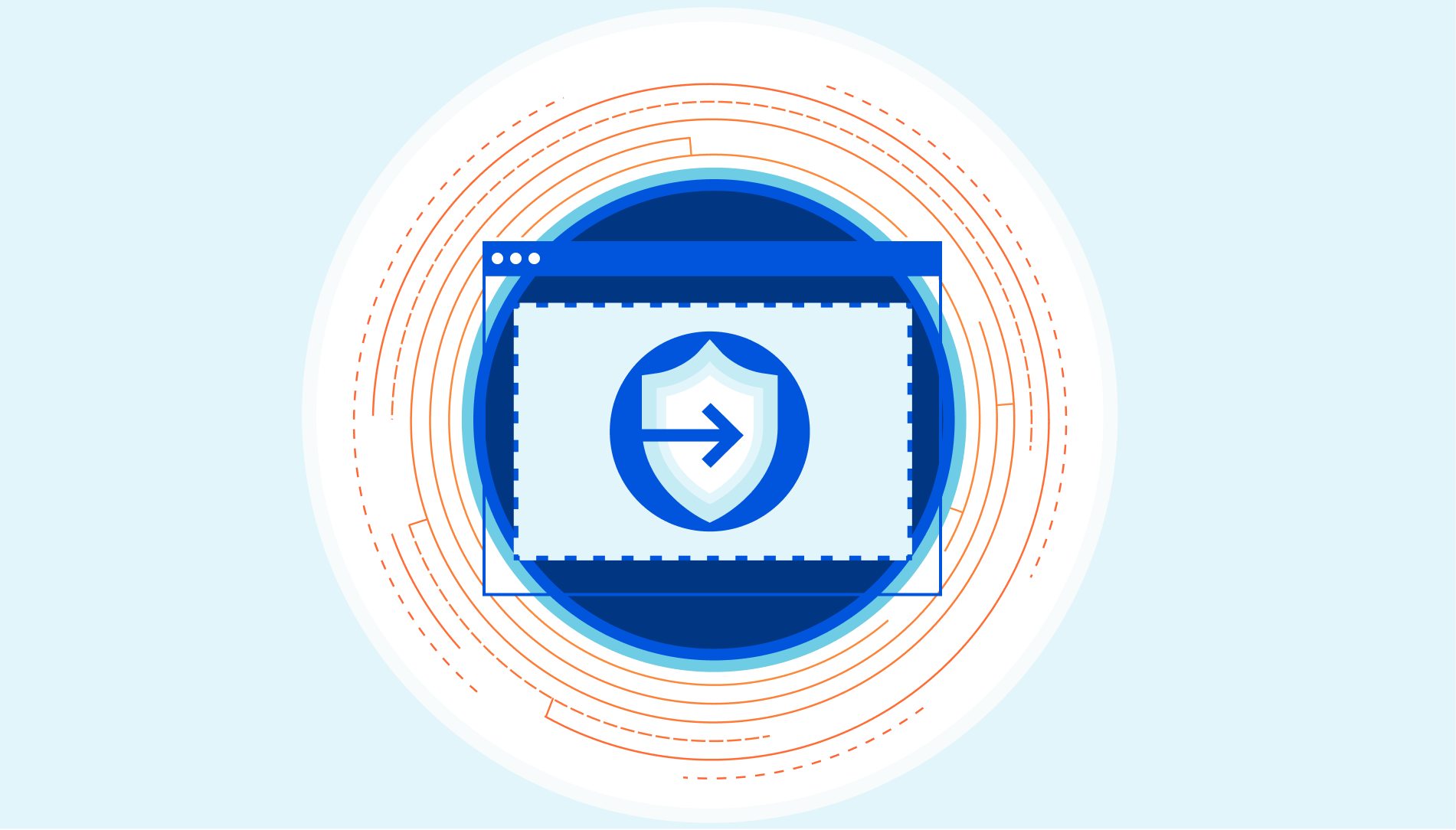
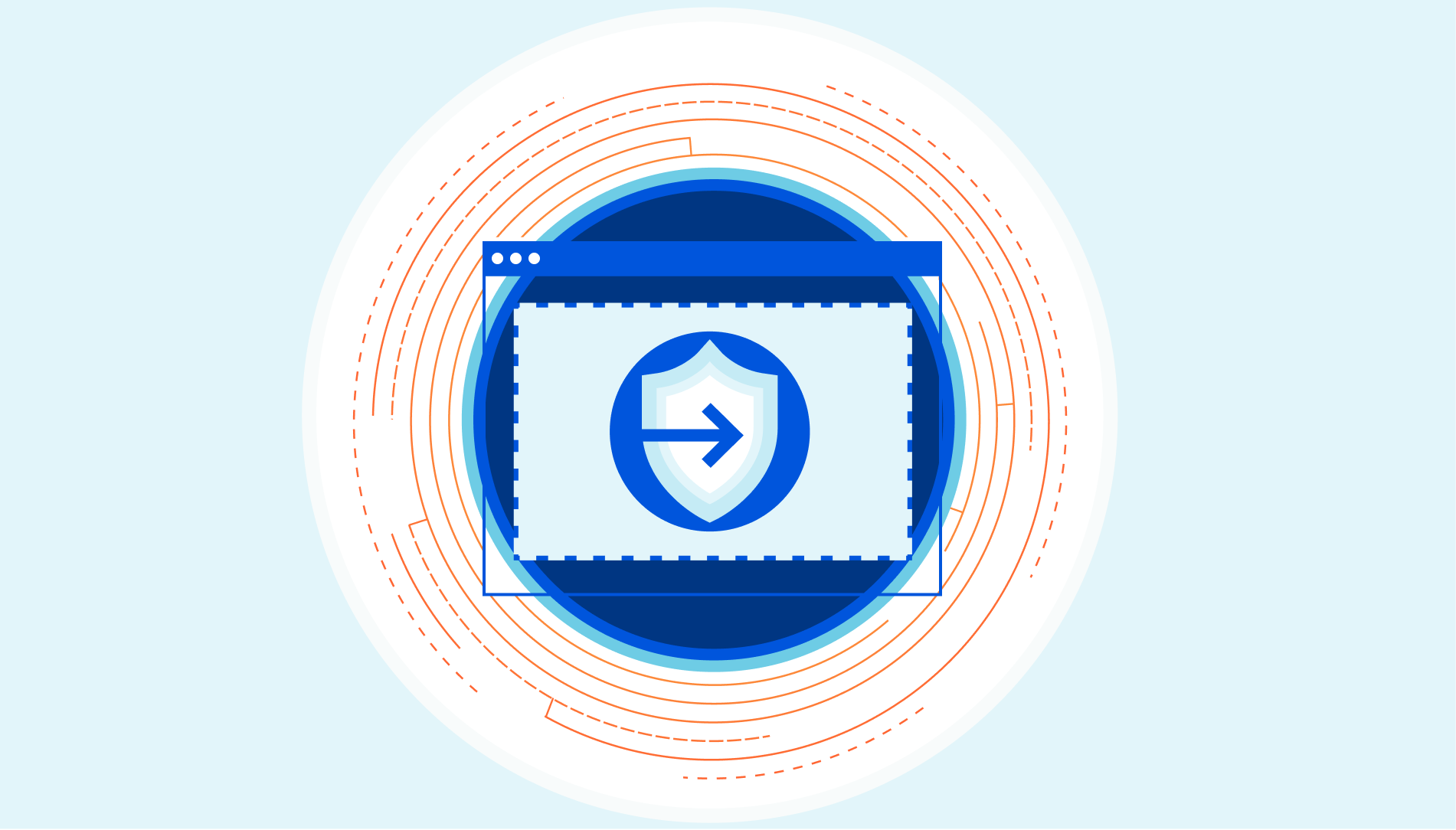
Cloudflare for Teams secures your company’s users, devices, and data — without slowing you down. Your team should not need to sacrifice performance in order to be secure. Unlike other vendors in the market, Cloudflare’s products not only avoid back hauling traffic and adding latency — they make your team faster.
We’ve accomplished this by building Cloudflare for Teams on Cloudflare. All the products in the Zero Trust platform build on the improvements and features we’re highlighting as part of Speed Week:
- Cloudflare for Teams replaces legacy private networks with Cloudflare’s network, a faster way to connect users to applications.
- Cloudflare’s Zero Trust decisions are enforced in Cloudflare Workers, the performant serverless platform that runs in every Cloudflare data center.
- The DNS filtering features in Cloudflare Gateway run on the same technology that powers 1.1.1.1, the world’s fastest recursive DNS resolver.
- Cloudflare’s Secure Web Gateway accelerates connections to the applications your team uses.
- The technology that powers Cloudflare Browser Isolation is fundamentally different compared to other approaches and the speed advantages demonstrate that.
We’re excited to share how each of these components work together to deliver a comprehensive Zero Trust platform that makes your team faster. Continue reading
Magic makes your network faster


We launched Magic Transit two years ago, followed more recently by its siblings Magic WAN and Magic Firewall, and have talked at length about how this suite of products helps security teams sleep better at night by protecting entire networks from malicious traffic. Today, as part of Speed Week, we’ll break down the other side of the Magic: how using Cloudflare can automatically make your entire network faster. Our scale and interconnectivity, use of data to make more intelligent routing decisions, and inherent architecture differences versus traditional networks all contribute to performance improvements across all IP traffic.
What is Magic?
Cloudflare’s “Magic” services help customers connect and secure their networks without the cost and complexity of maintaining legacy hardware. Magic Transit provides connectivity and DDoS protection for Internet-facing networks; Magic WAN enables customers to replace legacy WAN architectures by routing private traffic through Cloudflare; and Magic Firewall protects all connected traffic with a built-in firewall-as-a-service. All three share underlying architecture principles that form the basis of the performance improvements we’ll dive deeper into below.
Anycast everything
In contrast to traditional “point-to-point” architecture, Cloudflare uses Anycast GRE or IPsec (coming soon) tunnels to send and receive traffic for customer Continue reading
Cloudflare Backbone: A Fast Lane on the Busy Internet Highway
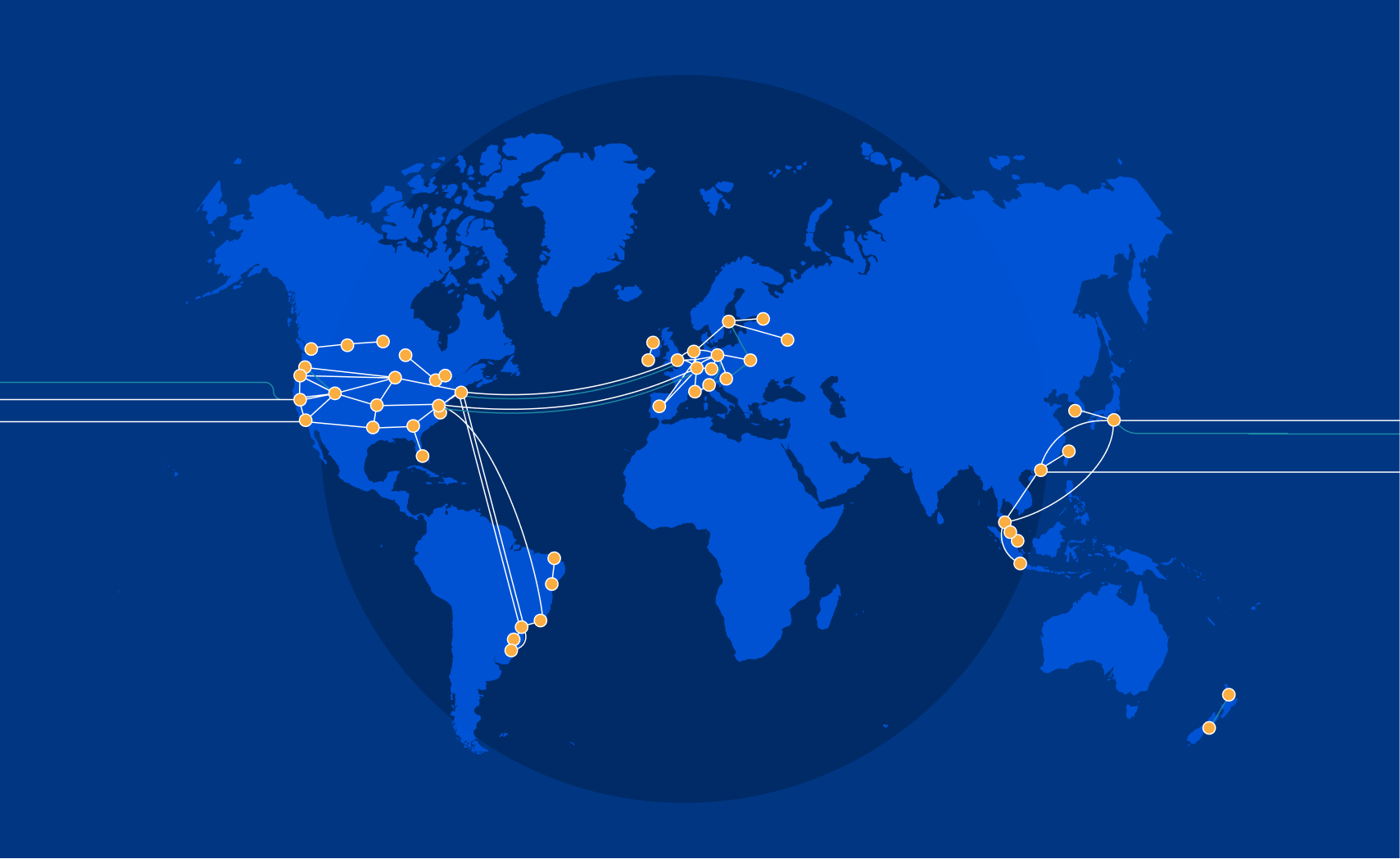
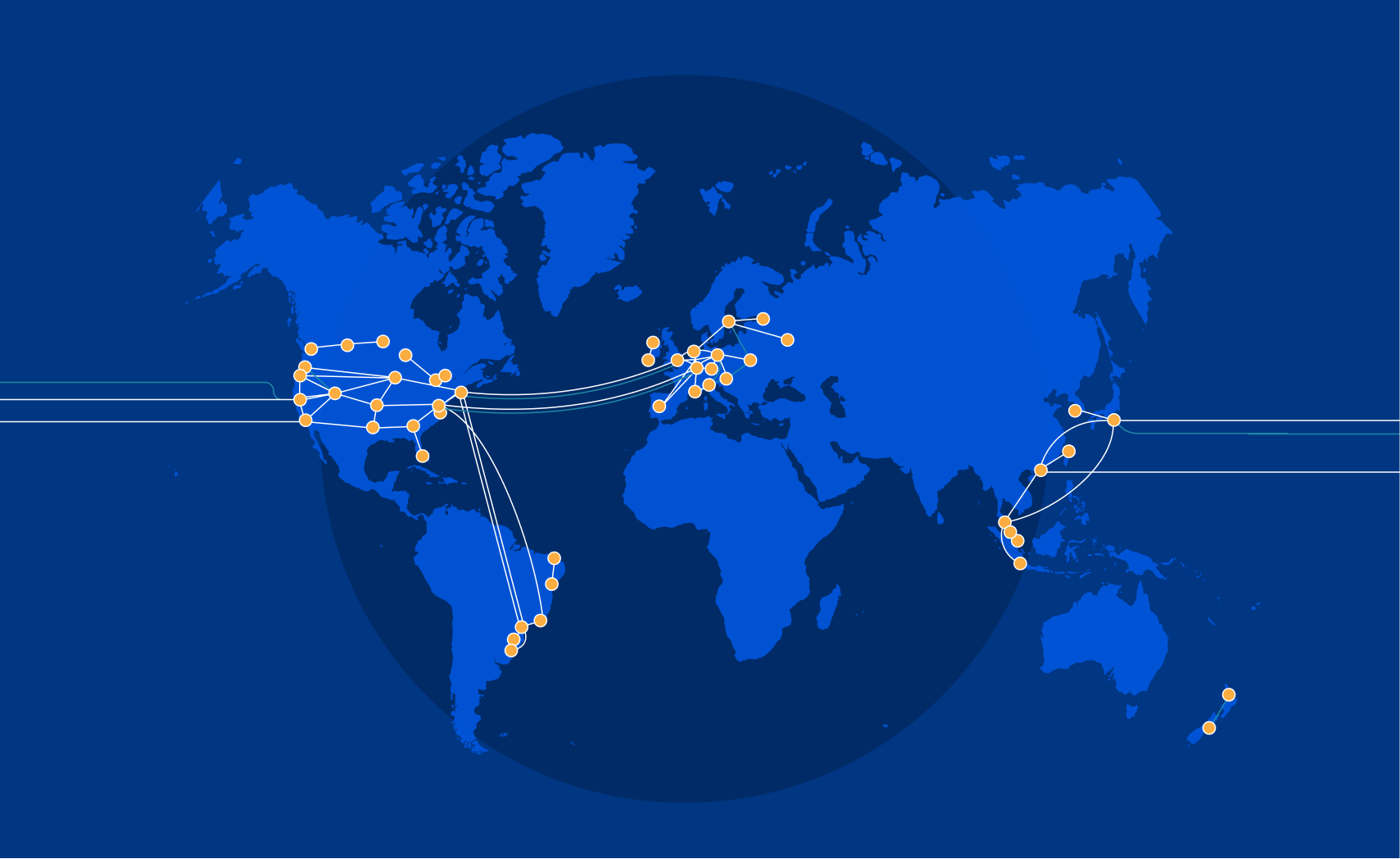
The Internet is an amazing place. It’s a communication superhighway, allowing people and machines to exchange exabytes of information every day. But it's not without its share of issues: whether it’s DDoS attacks, route leaks, cable cuts, or packet loss, the components of the Internet do not always work as intended.
The reason Cloudflare exists is to help solve these problems. As we continue to grow our rapidly expanding global network in more than 250 cities, while directly connecting with more than 9,800 networks, it’s important that our network continues to help bring improved performance and resiliency to the Internet. To accomplish this, we built our own backbone. Other than improving redundancy, the immediate advantage to you as a Cloudflare user? It can reduce your website loading times by up to 45% — and you don’t have to do a thing.
The Cloudflare Backbone
We began building out our global backbone in 2018. It comprises a network of long-distance fiber optic cables connecting various Cloudflare data centers across North America, South America, Europe, and Asia. This also includes Cloudflare’s metro fiber network, directly connecting data centers within a metropolitan area.

Our backbone is a dedicated network, Continue reading
Unboxing the Last Mile: Introducing Last Mile Insights


“The last 20% of the work requires 80% of the effort.” The Pareto Principle applies in many domains — nowhere more so on the Internet, however, than on the Last Mile. Last Mile networks are heterogeneous and independent of each other, but all of them need to be running to allow for everyone to use the Internet. They’re typically the responsibility of Internet Service Providers (ISPs). However, if you’re an organization running a mission-critical service on the Internet, not paying attention to Last Mile networks is in effect handing off responsibility for the uptime and performance of your service over to those ISPs.
Probably not the best idea.
When a customer puts a service on Cloudflare, part of our job is to offer a good experience across the whole Internet. We couldn’t do that without focusing on Last Mile networks. In particular, we’re focused on two things:
- Cloudflare needs to have strong connectivity to Last Mile ISPs and needs to be as close as possible to every Internet-connected person on the planet.
- Cloudflare needs good observability tools to know when something goes wrong, and needs to be able to surface that data to you so that you can be Continue reading